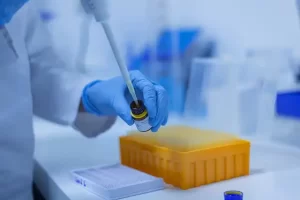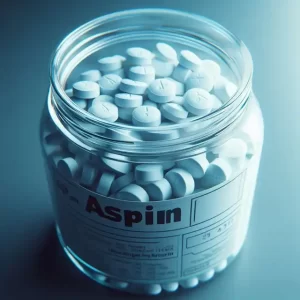Bacteria and Lactic Acid Drive Cancer Resistance
- Early Biomarker for Multiple Sclerosis Development Identified Years in Advance
- Aspirin Found Ineffective in Improving Recurrence Risk or Survival Rate of Breast Cancer Patients
- Child Products from Aliexpess and Temu Contain Carcinogens 3026x Over Limit
- Daiichi Sankyo/AstraZeneca’s Enhertu Shows Positive Results in Phase III DESTINY-Breast06 Clinical Trial
- Mn007 Molecules Offer Potential for Combating Streptococcus pyogenes Infection
- Popular Indian Spices Banned in Hong Kong Over Carcinogen Concerns
Bacteria and Lactic Acid Drive Cancer Resistance
- AstraZeneca Admits for the First Time that its COVID Vaccine Has Blood Clot Side Effects
- Was COVID virus leaked from the Chinese WIV lab?
- HIV Cure Research: New Study Links Viral DNA Levels to Spontaneous Control
- FDA has mandated a top-level black box warning for all marketed CAR-T therapies
- Can people with high blood pressure eat peanuts?
- What is the difference between dopamine and dobutamine?
- How long can the patient live after heart stent surgery?
Bacteria and Lactic Acid Drive Cancer Resistance.
Tumor-Resident Bacteria Enhance Cancer Treatment Resistance Through Lactic Acid Production.
In May 2020, a study published in the Science journal grabbed significant attention.
Researchers from the Weizmann Institute of Science in Israel conducted an analysis of over 1,526 samples from seven common solid tumors, including breast cancer, lung cancer, ovarian cancer, pancreatic cancer, melanoma, bone cancer, and brain tumors.
Their findings revealed that a substantial proportion of solid tumors contained bacteria, most of which were “intracellular bacteria” within cancer cells.
Moreover, these bacteria appeared to have tumor-specific characteristics, with different types of tumors harboring various bacterial species.
Subsequent studies further indicated a close association between these tumor-resident bacteria and cancer initiation, progression, metastasis, and resistance to treatment.
On October 19, 2023, researchers from the MD Anderson Cancer Center at the University of Texas published a study in the journal Cancer Cell titled “Tumor-Resident Lactobacillus iners Confers Chemoradiation Resistance through Lactate-Induced Metabolic Rewiring.”
This study revealed that the lactic acid-producing bacteria residing in tumors drive resistance to radiation therapy, suggesting that bacteria producing lactic acid within different cancer types could serve as novel targets for cancer treatment.

Specifically, the lactic acid-producing Lactobacillus iners initiated the growth and proliferation of cancer cells using lactic acid as a fuel source instead of glucose. This alteration rewired the oxidative stress signaling pathways post-radiation therapy, thus making the cancer cells resistant to treatment.
Cervical cancer, closely associated with human papillomavirus (HPV), shares a similar origin with anal and head and neck cancers and exhibits similarities at the histological and genomic levels. While cervical cancer typically responds well to treatment, some patients develop resistance. In this study, the research team investigated the role of the tumor microbiome in driving different responses. They utilized microbiome sequencing, targeted bacterial cultures, and in vitro models to explore the tumor microbiome. The team conducted large-scale sequencing analysis and targeted culture of tumor-resident bacteria in 101 cervical cancer patients who received chemotherapy between September 2015 and March 2022.
The research team found that Lactobacillus iners, even after accounting for known clinical risk factors, tumor and patient blood microbiome factors, and immune environment factors, was associated with poor radiation therapy response, reduced recurrence-free survival (RFS), and overall survival (OS).
Lactobacillus iners, a fermenting bacterium, produces l-lactic acid as the final product of its metabolism. In this study, the research team discovered that Lactobacillus iners within tumors produced l-lactic acid (the optical isomer of lactic acid, and the primary form of lactic acid in the body). Cancer cells then utilized l-lactic acid instead of glucose to promote metabolic cycling and combat oxidative stress post-radiation therapy.
Additionally, the levels of lactic acid and lactate dehydrogenase (LDH) in tumors have been shown to be associated with aggressive tumor growth and poor survival in multiple cancer types.
The research team further confirmed that introducing lactic acid-producing Lactobacillus iners into cancer cells in vitro induced resistance to cancer radiotherapy and chemotherapy, resulting in a rewiring of cancer cell metabolism using increased lactic acid. The study results also indicated that these bacteria may undergo certain changes before cancer development that are not present in healthy individuals.

While the focus of this study was on Lactobacillus iners, the research team also observed a significant correlation between genetically similar lactic acid-producing lactobacilli residing in other parts of the body and low survival rates in various cancers, including colorectal cancer, lung cancer, head and neck cancer, and skin cancer.
Currently, the research team is working on developing new methods to specifically target these tumor-resident bacteria for delivering anticancer drugs locally, thereby improving the prognosis for various cancer types.
In summary, the findings of this study suggest that lactic acid bacteria within tumors can induce cancer treatment resistance by altering tumor metabolism and lactic acid signaling pathways. This research also suggests that lactic acid bacteria within tumors hold promise as therapeutic targets for various cancer types.
Link to the paper: Cancer Cell – Tumor-Resident Lactobacillus iners Confers Chemoradiation Resistance through Lactate-Induced Metabolic Rewiring
Bacteria and Lactic Acid Drive Cancer Resistance.
(source:internet, reference only)
Disclaimer of medicaltrend.org
Important Note: The information provided is for informational purposes only and should not be considered as medical advice.



